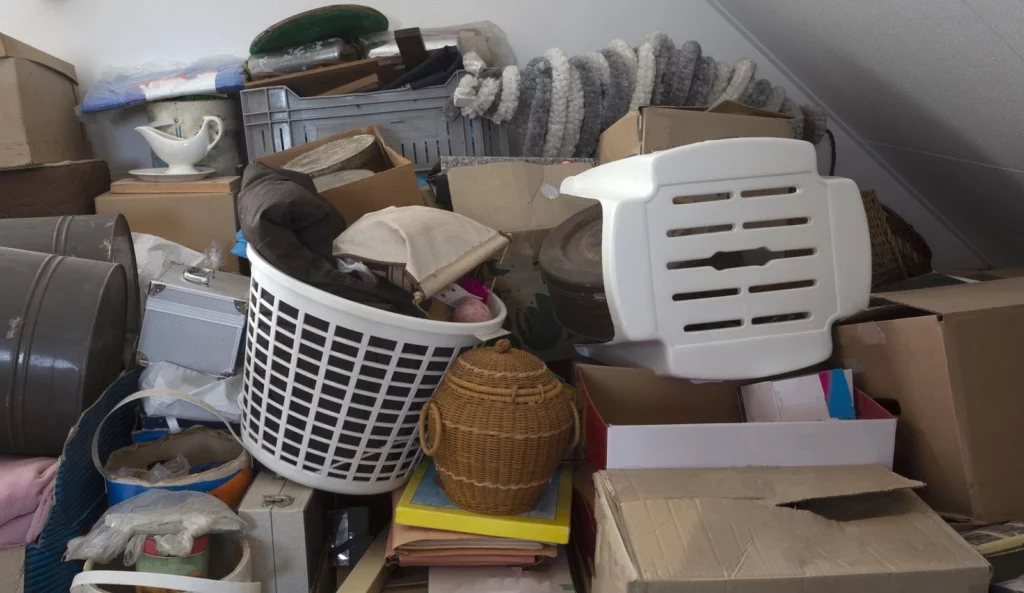In any home or business environment, mess and untidiness will steadily grow and worsen if cleaning and organising isn’t carried out thoroughly or frequently enough. Many people refer to mess in these settings as clutter, but at what point exactly does a minor mess become significant clutter and what can you do to clean a cluttered home?
With a view to helping you to understand what ‘clutter’ is and prevent it from becoming a problem, this blog will delve into this subject while providing effective tips on reducing clutter and explaining in necessary circumstances how Ideal Response can help.
What is clutter?
The word clutter is used to broadly define an untidy mess that is formed from a selection of different items. It is also commonly associated with being unwanted, excessive, uncontrollable and distressing. Clutter can be made up of anything, from clothing, children’s toys, sentimental items, rubbish, ornaments, furniture, newspapers or any other objects that haven’t been properly disposed of, tidied away or stored correctly.
It’s to be expected that any space will see a level of clutter at some point in time, but if clutter isn’t sufficiently controlled and begins to grow, it can reach a point where the person who owns the property is unable to restore the space back to its original condition.
In many instances, clutter could be caused by procrastination, a lack of organisation, a property that hasn’t been cleaned over a long period of time (e.g. caused by an undiscovered death) or the end result of someone that suffers from hoarding disorder.

How to reduce clutter in your home
When you begin to see clutter mounting in your home, you should do all you can to stop it from becoming a problem. It’s possible to reduce the level of clutter in your home simply by actively monitoring problem areas and frequently decluttering to prevent significant mess from building.
An important factor for successful decluttering is knowing what to keep, what to get rid of, what to move elsewhere and what is best left where it is. This could mean buying new furniture to house items that are continually cluttering your home or having to choose between two similar items, picking one over the other.
In some cases, you may need to be hard on yourself to let some things go, but you’ll need to find a balance between getting rid of items for the greater good and keeping something that is unquestionably useful or sentimentally significant. It can be difficult to do this, especially if it means having to part with items that you’re fond of, but if it prevents the amount of potentially dangerous clutter in your home, it’s something you need to do.
To casually declutter your home, you should:
- Frequently remove unwanted items from counters, shelves and tables
- Visualise how you want each room to look
- Empty drawers and storage furniture before only replacing items you actually want
- Clean one area at a time
- Pick up a select number of items and find the ideal place for them
- Section items by what you want to keep, bin, recycle or give to charity
- Schedule time for decluttering your entire home.
How to tackle clutter
There are several steps you can take to tidying away or removing clutter yourself, but if it’s reached a point that you don’t even know where to start, it would be advisable to seek help from an expert in cleaning significant levels of clutter, both in domestic and business settings.
Ideal Response provides a hoarder cleanup service that suits the homes and business spaces of hoarders or any situation where the occupant needs help with removing a significant amount of clutter.
If you want help with tackling clutter, contact Ideal Response’s hygiene and recovery experts for a free estimate via phone on 01622 926 505 , or provide images and further information through the Ideal Response website.



